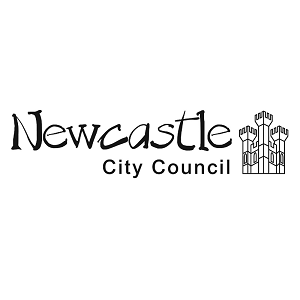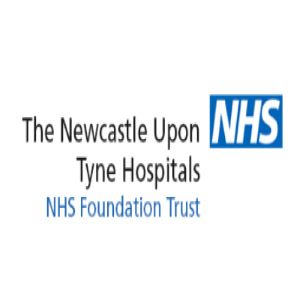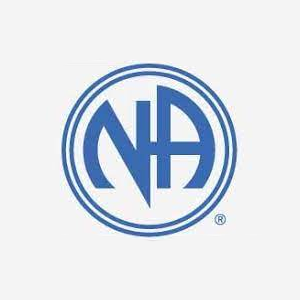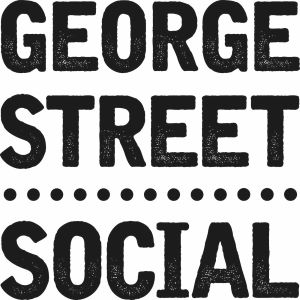Drug & Alcohol Rehab in Northumberland

How Does Rehab Work?
Rehabilitation is a process that helps individuals in working towards restoring balance and mental health. Rehab focuses on addressing the patient holistically with individual therapy aimed at addressing addictive behaviours. With guidance from a professional therapist or counsellor, coping strategies are taught and individuals can access much-needed support. Strategies deal with relapse prevention and clients can be assigned to an extended inpatient programme or move to an outpatient programme. With inpatient rehab (residential rehab), individuals will live at the rehab centre for the duration of treatment. Outpatient services are an alternative option in which clients will attend daily/weekly sessions for therapy but will not attend a full-time programme. There are both free and paid outpatient services available within the UK.
What Happens During Residential Rehab?
Taking the brave step towards recovery starts with rehabilitation. It is a process, and it takes time but with dedication and support relapse can be prevented. If you’re unsure about what rehab entails, we provide a breakdown of what to expect.
Rehabilitation starts off with an assessment completed by an experienced medical professional. The goal is to investigate your history of substance misuse, and whether pre-existing medical conditions are present. This includes any comorbidities such as mental health disorders that require specialised treatment.
The next part of treatment is detoxification. Detox assists with the removal of harmful substances within the body. It may be crucial that it is medically supervised to manage withdrawal symptoms. This is especially true for benzodiazepine and alcohol dependency. The final phase of the programme is the treatment itself (therapy). Individuals can then choose inpatient or outpatient treatment.
While attending rehab patients will receive therapy. Treatment can be delivered on an inpatient or outpatient programme. Therapy consists of individual counselling including Cognitive Behavioural Therapy, skill-building and group therapy.
1. Assessment

Before treatment can be delivered, a health assessment is provided. This involves an in-depth look at individual medical history, drug or alcohol use, and the presence of mental health disorders. Clients can be accommodated with an assessment by phone. An admissions team will be responsible for the telephone assessment to determine the best form of therapy for your needs. Along with determining a treatment plan, the admissions team or medical staff will have reliable information to facilitate the detox process.
Should you require the assistance of a medical professional to manage addiction, seek a medical assessment prior to treatment commencing. Assessments are an important part of choosing the right therapy and whether inpatient or outpatient programmes are most suitable for your healthcare requirements.
2. Detox

Detox will be completed before therapy commences. It is often performed in a private rehab where individuals can receive 24/7 care to reduce withdrawal symptoms.
Detox is necessary where substance abuse and addiction are present. It should be managed by experienced and knowledgeable medical staff to prevent uncomfortable and severe withdrawal symptoms. For those who go through withdrawal, there is a higher risk of relapsing if not managed within a rehab facility. In a residential setting, qualified staff may offer medication to minimise difficult withdrawal. The approach for therapy, once detox is completed, is determined by the medical assessment.
3. Therapy

Therapy involves skill-building, coping strategies, and identifying the reasons for addiction. It can be delivered in an inpatient or an outpatient plan, each offering its benefit and potential drawbacks.
Step by Step Process for Residential Rehab
To understand your medical and mental health history.
Arrange a suitable date to begin your journey to recovery.
Begin the managed withdrawal process from substances including alcohol.
To understand the root cause of addiction and how to overcome it.
Aftercare is provided to help manage the risk of relapse.
To help heal the wounds that addictive behaviour has caused others.
Find your Nearest Rehab Centre in Northumberland
The nearest rehab centre is Betel UK – Hexham.
Address: Betel UK – Hexham, Betel House, Hexham NE46 4JY, United Kingdom
Call 0333 4444 432 to discuss your alcohol or drug rehab requirements and any other questions you may have about the process of residential rehab.
Outpatient Addiction Services in Northumberland
When you look for a treatment programme, it will be influenced by the nature of the addiction and your budget requirements. Individuals who enter an inpatient or outpatient programme will need to give their full commitment to make the most of therapy. We explore the strengths and weaknesses of outpatient services compared to residential treatment.
An outpatient programme does not require you to stay at the residence for therapy. If you have work, family, or other lifestyle commitments, outpatient services allow you to concentrate on these commitments while visiting a clinic or therapist to receive addiction therapy and other care services.
PrivateOutpatient care involves individual counselling with a therapist. You will travel to the therapist which involves hour-long treatment sessions. Apart from private therapy, there are also free services from charities and government-backed organisations that address substance addictions.
NHS Free Addiction Services in Northumberland

Westgate Community College West Road Newcastle-upon-Tyne Tyne and Wear NE4 9LU
Website
Royal Victoria Infirmary Antenatal Clinic Queen Victoria Rd Newcastle-upon-Tyne Tyne and Wear NE1 4LP
WebsiteThe Benefits of Outpatient Services
Private outpatient programmes are tailored to the patient. The purpose is to provide the best standard of support and intervention for recovery from addiction. – Outpatient care is considered flexible because individuals with family/work commitments may continue to manage these areas of life while attending 1 or 2 therapy sessions per week. – It is also more affordable in comparison to residential treatment services.
The Challenges of Outpatient Services
While one remains at home and takes part in outpatient programmes, they may be at higher risk of relapse due to being exposed to triggers and easy access to drugs or alcohol. Another point to consider is that free outpatient addiction services – offered by the NHS and other UK-based charities – do not provide a bespoke treatment plan and waiting lists are to be expected.

How Much Does Rehab Services Cost in Northumberland?
Alcohol and drug rehab within a residential facility can cost around £1500 – £4000 per week. Residential rehab is one of the costlier forms of treatment for alcohol or drug dependency. For free and cost-effective services, charities and government funded services offer programmes for all individuals seeking recovery.
The NHS and charities such as Turning Point will require a self-referral to be considered for addiction treatment. You will also find many other affordable services (such as private counselling) or free therapies and community-supported services for those with drug or alcohol addiction. These groups include AA or Alcoholics Anonymous, Narcotics Anonymous, and Cocaine Anonymous.
Support Groups in Northumberland

Blyth
Oaktrees 15/21 Quayside Road Blyth Northumberland NE24 2AS

Morpeth Big Book Study Physical & Online
Methodist Church, Howard Terr An overflow meeting facility is available should meeting numbers exceed 15. NE61 1HU

Cramlington As Bill Sees It
Welcome Chapel, Station Rd NE23 1EN
The Pros and Cons of Seeking Treatment in Your Local Area
Pros
1. You are familiar with the area which may provide a layer of comfort/safety.
2. Loved ones can easily travel to visit or are close by.
3. You could save on the costs of travelling long distances for addiction treatment, or free addiction services may only be offered in your area of residency.
Cons
1. A local environment means access to drug dealers or other triggers. This is more of an issue if you opt for outpatient programmes.
2. Not considering locations outside your area could result in a missed opportunities for more valuable and rewarding programmes.
3. Addiction treatment services that are close by do not always offer the best standard of rehab.
In the event you are unsure about a particular addiction treatment service, you can look to the CQC website for more information including a rating of that service.

